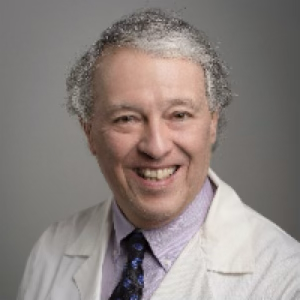Infection Prevention Week Advocacy Guide (2024)
Search For Schools
When you click on a sponsoring school or program advertised on our site, or fill out a form to request information from a sponsoring school, we may earn a commission. View our advertising disclosure for more details.
“We use this week for a couple of things. The main thing we do is use it primarily as a point of reeducation. It is easy to forget best practices, so we work hard to make these concepts stick…In the past, we have set up a booth or a table with samples of different devices and remind care providers of the safe ways to use them.”
John Sellick, DO, Hospital Epidemiologist at Veterans Affairs Western New York Healthcare System and Kaleida Health
Infection prevention is deeply rooted in medical science and public health evolution. The concept began to take shape in the mid-19th century with the pioneering work of individuals such as Ignaz Semmelweis and Florence Nightingale.
Semmelweis, known as the father of infection control, introduced hand hygiene practices in obstetric clinics, significantly reducing the incidence of puerperal fever. Through her efforts during the Crimean War, Florence Nightingale emphasized the importance of sanitation, leading to a broader acceptance of hygiene practices in healthcare settings. The discovery of germ theory by Louis Pasteur and Robert Koch further revolutionized infection prevention, underscoring the importance of sterilization and aseptic techniques. These foundational principles laid the groundwork for modern infection control practices, which are now integral to healthcare systems worldwide.
Infections continue to pose a persistent and considerable risk within healthcare environments and beyond. Healthcare-associated infections (HAIs) can lead to extended hospital stays, increased medical costs, and higher mortality rates. The emergence of antibiotic-resistant bacteria, such as MRSA and VRE, has compounded the challenge, making it critical to maintain rigorous infection control measures and responsible antibiotic stewardship. The global spread of emerging infectious diseases, evidenced by outbreaks of Ebola, Zika, and, most recently, Covid-19, further underscores the ongoing vulnerability of populations to infectious threats.
The work of infection prevention professionals cannot be understated. For example, between 2014 and 2016, there were eleven Ebola cases in the US, a highly contagious hemorrhagic fever that has a 50 percent fatality rate. “ I remember that time and the amount of discussion, planning, and angst. There was also a huge political overlay that made it even more complicated,” shares Dr. John Sellick, a hospital epidemiologist at Veterans Affairs Western New York Healthcare System and Kaleida Health. “Many people sit back and say large outbreaks of disease like Ebola are never going to going to happen. But, if everything hits the fan, we have to know we have done our best to have measures in place to protect and educate people. I’m absolutely thrilled that we never got to try our systems out.”
One of the many ways infection prevention awareness is heightened globally is through International Infection Prevention Week (IIPW), observed annually in the third week of October. IIPW is critical in educating healthcare professionals and the public about the importance of infection control practices. During this week, many activities, including workshops, seminars, and public awareness campaigns, are organized to disseminate invaluable information on various aspects of infection prevention. “Education is what it is all about,” says Dr. Sellick.
Keep reading to learn more about the critical importance of International Infection Prevention Week, careers in infection prevention, and the essential roles of infection prevention specialists.
Meet the Expert: John Sellick, DO, MS

Dr. John Sellick’s work involves infection prevention and post-travel care. He is a hospital epidemiologist at Veterans Affairs Western New York Healthcare System and Kaleida Health and a staff physician with the University of Buffalo Student Health Services. His work includes pandemic and bioterrorism planning activities for those hospital systems, as well as for UB.
Dr. Sellick collaborates with hospital infection control teams, pharmacists, microbiologists, and administrators. He has given talks to the public and medical community about the risks for and treatment of Ebola and has done media interviews about that disease and others.
Importance of International Infection Prevention Week
Infection Prevention Week serves as a crucial focal point for raising awareness about the significance of infection control across various settings, particularly healthcare environments. This annual observance provides an opportunity to educate healthcare professionals, patients, and the general public about best practices in infection prevention and the critical role these practices play in safeguarding public health.
“We use this week for a couple of things. The main thing we do is use it primarily as a point of reeducation,” shares Dr. Sellick. “It is easy to forget best practices, so we work hard to make these concepts stick. Anything that we can do to raise your visibility and to get people’s attention is what you have to do. In the past, we have set up a booth or a table with samples of different devices and remind care providers of the safe ways to use them.”
For Dr. Sellick, it is also a time to help bring awareness to the profession and hopefully recruit younger staff to this field: “I’d really like to get some young people. I’d like to have a mix of people at different stages of their careers to have that continuity in this field. Often, because of seniority, people who find their way to this field are at the end of their careers, and this is their last job. I would love to have staff at all phases,” he says.
Careers in Infection Prevention
A career in infection prevention is both challenging and rewarding, offering opportunities to make significant contributions to public health. Infection prevention specialists play a pivotal role in reducing the incidence of HAIs by implementing evidence-based practices and rigorous infection control measures. “There’s not a huge number of us,” says Dr. Sellick, about epidemiologists. “There are a lot of what we call infection prevention specialists. These are mostly nurses, although some are microbiology technicians or technologists. We even have pharmacists who specialize in this, and we call them ASP, or antimicrobial stewardship pharmacists. They look at the proper use of antibiotics so that end up with organisms that are very deadly and difficult to treat.”
“There are many ways someone could approach this field on what they want to do,” notes Dr. Sellick. Here is how to get started in each career:
Infectious Disease Physician
An infectious disease physician is a medical doctor specializing in diagnosing and treating infections caused by bacteria, viruses, fungi, and parasites. “You attend medical school, and after a general residency, you complete an infectious diseases fellowship. Depending on where you do that fellowship, you may get a lot of information about infection prevention, or you may have to take an additional course,” says Dr. Sellick.
Infection Prevention Nurses
Nurses can also specialize in infection prevention: “You need to first earn your nursing degree and then work your way into an infection prevention program,” advises Dr. Sellick. He strongly recommends that nurses who are interested in infection prevention complete additional education to help set themselves apart in this field.
Microbiologist
Microbiologists study microorganisms such as bacteria, viruses, fungi, and parasites to understand their functions and behaviors. They play an essential role in identifying infectious agents. “There are a few ways to start a career in infection prevention as a microbiologist. You can go to medical technology school and make microbiology your primary focus by finding a job in this field, or you could go a more traditional academic route and get an advanced degree such as a PhD and a fellowship. From there, you could become a lab director,” notes Dr. Sellick.
Pharmacy
Pharmacists specializing in antimicrobial stewardship play a crucial role in infection prevention by ensuring the appropriate use of antibiotics and minimizing the risk of antibiotic resistance. “You would need to earn a PharmD degree and then complete a residency in this field to learn the additional skills necessary,” explains Dr. Sellick.
Responsibilities of Infection Prevention Specialists
Infection prevention specialists are responsible for implementing and overseeing infection control measures in various settings, including hospitals, long-term care facilities, and outpatient clinics. They work closely with healthcare personnel to ensure proper protocols are followed to prevent the spread of infections. Their responsibilities include:
- Conducting ongoing surveillance of healthcare-associated infections (HAIs)
- Developing and enforcing policies and procedures for infection prevention
- Educating healthcare workers on best practices for preventing infections
- Investigating outbreaks or clusters of infections
- Collaborating with other departments such as microbiology, pharmacy, and environmental services
- Ensuring compliance with state and federal regulations related to infection control
“Historically, this field was called infection control. But we realized that the idea is that you don’t want to control it. You want to prevent it,” says Dr. Sellick. “The primary way we do this is through surveillance. You can’t figure out what you have to fix if you don’t know what to fix. Now,, we have electronic systems that can scrape a lot of the data for us and show us what we really need to focus on.”
He continues, “The other thing that has always been a huge part of infection prevention is education. This includes frontline providers as well as administrators who don’t always understand your role. We also help build policies and procedures we have to educate staff about. Not from the perspective of pushing paper, but making them living documents so that someone in the middle of the night says, ‘I have this patient with these symptoms. Do I need to put them in a private room or isolation?’ We have that clearly laid out for them.”

